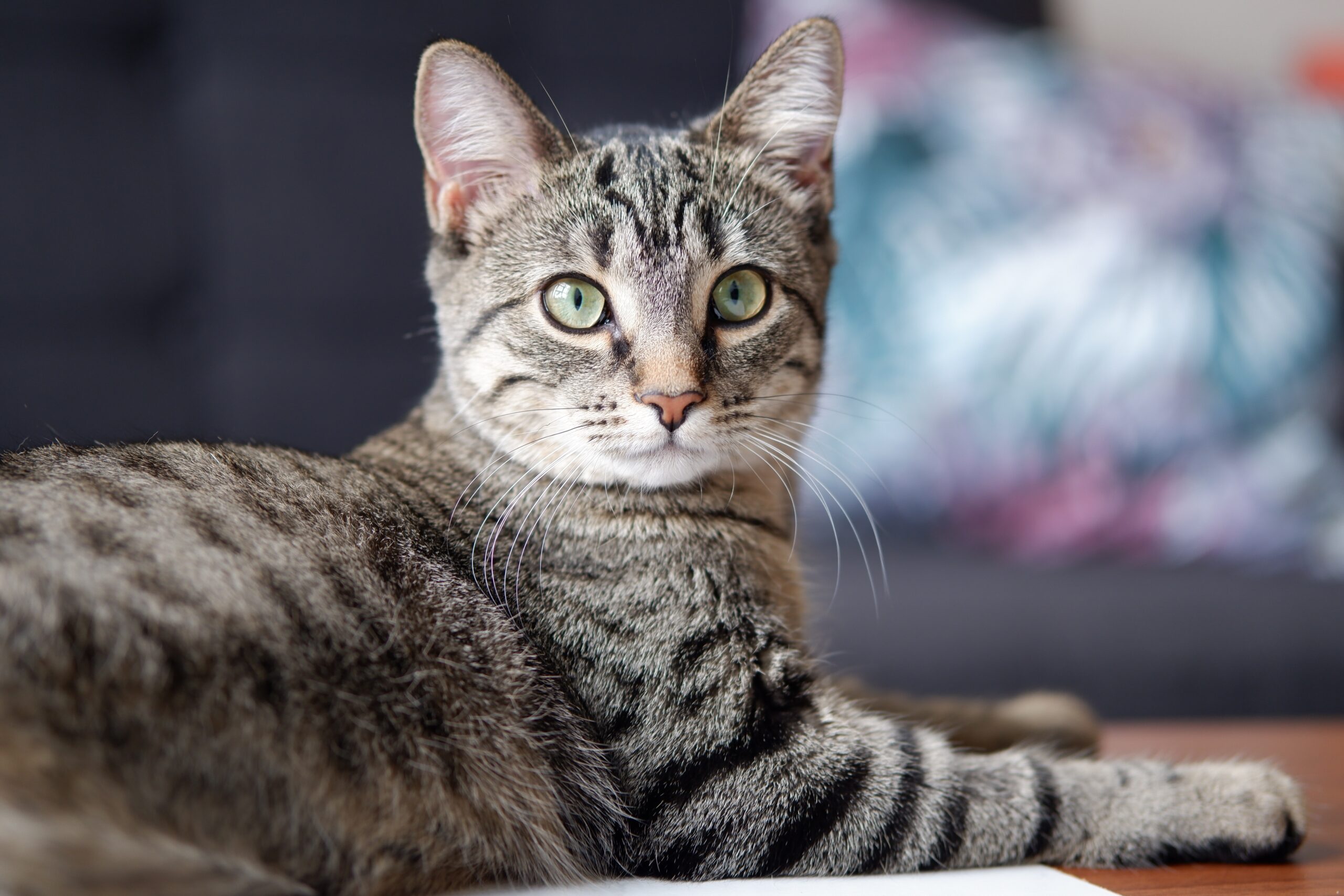Have you ever wondered if your furry feline friend can enjoy a delicious taste of applesauce? Well, it turns out that while cats may be curious creatures, not everything that piques their interest is safe for them to consume. In this article, we will explore whether cats can safely indulge in applesauce and discover the potential risks and benefits associated with this popular human snack. So, whether you’re pondering sharing a spoonful with your beloved pet or simply curious about their dietary preferences, read on to find out if cats can eat applesauce without any worries.
Health Effects of Applesauce on Cats
Applesauce is a popular snack for humans, but can it also be enjoyed by our feline friends? In this article, we will explore the health effects of applesauce on cats and determine whether it is safe for them to consume. We will delve into the nutritional profile of applesauce, discuss the potential benefits and risks, and provide guidance on how to incorporate it into their diet. So, let’s find out if your kitty can indulge in a little applesauce treat!
Nutritional Profile of Applesauce
Before we explore the health effects of applesauce on cats, let’s first take a look at its nutritional profile. The basic ingredients of applesauce include apples, water, and sometimes a sweetener like sugar or honey. Apples are a good source of vitamins A and C, as well as dietary fiber. However, it is worth noting that the exact nutritional content can vary depending on the brand and preparation method.
Is Applesauce Safe for Cats?
Now that we know what applesauce typically contains, let’s address the big question – is applesauce safe for cats to eat? The good news is that plain, unsweetened applesauce is generally considered safe for cats in small quantities. However, it should not be a significant part of their regular diet. While cats are obligate carnivores and primarily require meat-based diets, occasional treats like applesauce can be given in moderation.
Potential Benefits of Applesauce for Cats
While cats do not require applesauce in their diet, there are some potential benefits to offering it as an occasional treat. The fiber content in applesauce may help promote digestive health and prevent constipation in cats. Additionally, applesauce can provide a hydrating boost, especially if you mix it with water and offer it as a “cat-friendly” broth. Overall, it can be a fun and tasty way to add some variety to your cat’s treat options.
Potential Risks of Applesauce for Cats
Although plain applesauce can be safe for cats in moderation, there are a few risks to be aware of. The high sugar content in sweetened applesauce can be harmful to your feline friend, potentially leading to weight gain, dental issues, or even diabetes. Moreover, some cats may have sensitive stomachs and may experience digestive upset if they consume too much applesauce or have an underlying health condition. It is crucial to monitor your cat for any adverse reactions and moderate their intake accordingly.
Moderation is Key
As with any treat, moderation is key when it comes to offering applesauce to your cat. While the occasional lick or two is unlikely to cause harm, it is essential to remember that treats should only make up a small portion of your cat’s overall diet. Applesauce should never replace a balanced feline-appropriate diet. Whenever introducing a new treat into your cat’s routine, ensure that it doesn’t exceed 10% of their daily calorie intake.
Digestive System Considerations
Cats and Digestion
Understanding a cat’s digestive system is crucial when considering whether to incorporate applesauce into their diet. Cats are obligate carnivores, which means their bodies have evolved to derive nutrients efficiently from a meat-based diet. Their digestive tract is relatively short compared to animals that consume a lot of plant matter, reflecting their natural carnivorous diet.
How Does Applesauce Affect a Cat’s Digestive System?
Applesauce, being primarily composed of apples and water, may not pose significant issues for a cat’s digestive system when consumed in small quantities. Applesauce is generally easy to digest for cats, especially if it is made from well-cooked apples that are softer and more palatable. However, if your cat has a sensitive stomach, it’s best to introduce any new food gradually to minimize the risk of digestive upset.
Possible Digestive Issues
While cats can generally tolerate small amounts of plain applesauce, it’s important to be aware of potential digestive issues that may arise. Some cats have food sensitivities or allergies, and applesauce may not agree with them. Signs of digestive upset in cats can include diarrhea, vomiting, constipation, or excessive gas. If you notice any of these symptoms after giving your cat applesauce, it’s best to discontinue the treat and consult with your veterinarian if the symptoms persist or worsen.
Signs of Digestive Upset
When introducing applesauce or any new food to your cat’s diet, it’s crucial to monitor their response. Signs of digestive upset can manifest differently in each cat, but some common indicators include changes in litter box habits, discomfort, excessive grooming, or a decrease in appetite. If you notice any worrisome symptoms, consult with your veterinarian to determine the best course of action.

This image is property of images.unsplash.com.
Applesauce as a Treat for Cats
Offering Applesauce as a Treat
Now that we understand the potential effects of applesauce on a cat’s digestive system, let’s discuss how to offer it as a treat. If you decide to give your cat a taste of applesauce, it’s important to do it in a controlled and safe manner. Instead of pouring a large amount into their bowl, consider offering a small portion on a plate or saucer. This allows your cat to sample the treat without overwhelming their taste buds or stomach.
Choosing the Right Type of Applesauce
When selecting applesauce for your cat, always opt for plain, unsweetened varieties. Avoid applesauce with added sugars, artificial sweeteners, or any other additives that may be harmful to your cat. If possible, choose organic applesauce to ensure that it doesn’t contain pesticides or other harmful chemicals. Remember, the simpler the ingredient list, the better it is for your feline friend.
Introducing Applesauce to Cats
If your cat has never tasted applesauce before, it’s essential to introduce it gradually. You can start by offering a tiny amount on your fingertip and allowing your cat to lick it off. Observe their reaction and, if all goes well, gradually increase the portion size over time. Some cats may take to the taste of applesauce immediately, while others may be more hesitant. Patience is key when introducing any new food to your cat.
Monitoring the Cat’s Reaction
As with any new food or treat, it’s crucial to monitor your cat’s reaction to applesauce. Keep a close eye on their behavior and litter box habits in the hours and days following their first taste. If your cat shows any signs of digestive upset or discomfort, discontinue offering applesauce and consult with your veterinarian for further guidance.
Alternative Treat Options
While applesauce can be an occasional treat for cats, there are plenty of other cat-friendly options available. Consider offering your cat more traditional treats specifically designed for feline consumption. Treats made with high-quality animal protein, such as freeze-dried meat or crunchy dental treats, can be a healthier alternative to applesauce. Always consult with your veterinarian to determine the best treat options for your individual cat’s needs.
Medical Considerations
Cats with Specific Health Conditions
When considering introducing applesauce to your cat’s diet, it’s important to take into account any pre-existing health conditions they may have. Cats with diabetes, pancreatitis, or gastrointestinal issues may not tolerate applesauce well due to its sugar content or potential to cause digestive upset. If your cat has any underlying health conditions, it is crucial to consult with your veterinarian before offering them applesauce.
Consulting with a Veterinarian
Your veterinarian is your best resource when it comes to making decisions about your cat’s diet and treats. If you are unsure whether it is appropriate to offer applesauce to your feline friend, schedule a visit with your veterinarian. They can assess your cat’s overall health, discuss any potential concerns, and provide you with personalized guidance on treat options that best suit your cat’s needs.
Potential Allergic Reactions
Just like humans, cats can develop allergies to certain foods, and applesauce is no exception. While it is relatively uncommon for cats to have allergies to apples, it is not impossible. Monitor your cat closely after introducing applesauce for the first time and keep an eye out for signs of allergic reactions, such as itching, hives, or difficulty breathing. If you suspect an allergic reaction, contact your veterinarian immediately.
Applesauce and Medication Interactions
If your cat is on any medications, it is essential to consider potential interactions before giving them applesauce or any other treats. Some medications may have specific dietary restrictions or potential interactions with certain food ingredients. It is always best to consult with your veterinarian or a veterinary pharmacist to ensure that your cat’s medication is not compromised by the introduction of applesauce or any other new treats.

This image is property of images.unsplash.com.
Preparing Homemade Applesauce for Cats
Benefits of Homemade Applesauce
If you want to ensure the highest quality and control over the ingredients in your cat’s applesauce, consider making it at home. Homemade applesauce allows you to skip the additives and sweeteners found in some store-bought versions, providing a healthier alternative for your feline companion. Plus, making applesauce from scratch is a fun and rewarding activity that allows you to bond with your cat in the kitchen!
Recipe for Homemade Applesauce
Making homemade applesauce for your cat is a simple process that requires minimal ingredients and effort. Peel and core three organic apples and cut them into small chunks. Place the apple chunks in a saucepan with a little water and simmer them until they are soft and mushy. Mash the cooked apples with a fork or potato masher to achieve your desired consistency. Let the applesauce cool before offering it to your cat.
Preparing Applesauce for Cats
When preparing applesauce for cats, remember to omit any sweeteners, additives, or spices. Cats do not have a sweet tooth and don’t need, nor should they have, the added sugars found in human applesauce. It is essential to serve the applesauce plain and unsweetened to avoid any potential health risks. Always remember to cool the homemade applesauce before serving it to your cat to prevent any burns from hot food.
Storing and Serving Homemade Applesauce
Homemade applesauce can be stored in an airtight container in the refrigerator for up to five days. Before serving it to your cat, ensure that it is still fresh and has not developed any off odors or visible signs of spoilage. Serve the applesauce in small portions using a clean spoon or dish. If your cat doesn’t finish the applesauce within a few hours, discard any remaining leftovers to prevent bacterial growth.
Frequently Asked Questions
Can Applesauce Help with Hairballs?
While applesauce does contain fiber that can aid in digestion, it is not a guaranteed solution for hairballs. Hairballs occur when cats groom themselves and swallow hair, which may accumulate in their digestive tract. Regular brushing and providing specialized hairball control cat food are more effective ways to help prevent hairballs. If you have concerns about hairballs, consult with your veterinarian for appropriate methods to manage them.
Can Cats Eat Apples?
Yes, cats can eat small amounts of apples in moderation. However, it is crucial to remove the seeds, core, and stem before offering apples to your cat. The seeds contain small amounts of cyanide, which can be toxic to cats. Cut the apples into small, bite-sized pieces, and offer them as an occasional treat. Always monitor your cat for any signs of digestive upset or allergic reactions when introducing new foods.
What Should I Do If My Cat Eats Applesauce Accidentally?
If your cat accidentally consumes applesauce, there’s likely no immediate cause for concern. However, keep an eye on their behavior and monitor for any signs of digestive upset or unusual symptoms. If your cat shows any worrisome signs, consult with your veterinarian for guidance. Remember that prevention is key, so it’s essential to keep potential hazards, including human foods, out of your cat’s reach.
Can Kittens Eat Applesauce?
It is generally advised to avoid giving applesauce to kittens. Kittens have more delicate digestive systems and specific nutritional requirements that are best met through a balanced kitten food diet. Consult with your veterinarian for appropriate treats or supplemental options that are specifically formulated for kittens to ensure they receive the essential nutrients they need for proper growth and development.
Is Unsweetened Applesauce Better for Cats?
Yes, unsweetened applesauce is preferable for cats. Cats do not have the same taste preferences as humans, and the added sugars in sweetened applesauce can be harmful to their health. Opting for unsweetened applesauce ensures that your cat receives the nutritional benefits without the unnecessary additives. Always read the ingredient label carefully and choose plain applesauce with no additional sweeteners or artificial additives.

This image is property of images.unsplash.com.
Conclusion
In conclusion, while cats can safely enjoy small amounts of plain, unsweetened applesauce as an occasional treat, it should never replace a balanced feline diet. Applesauce can provide some potential benefits, such as added fiber and hydration, but it’s essential to monitor your cat for any adverse reactions or digestive upset. Remember to consult with your veterinarian for personalized advice, especially if your cat has any pre-existing health conditions. Treats should always be given in moderation, and alternative cat-friendly options are available to ensure your furry friend is happy, healthy, and satisfied.

